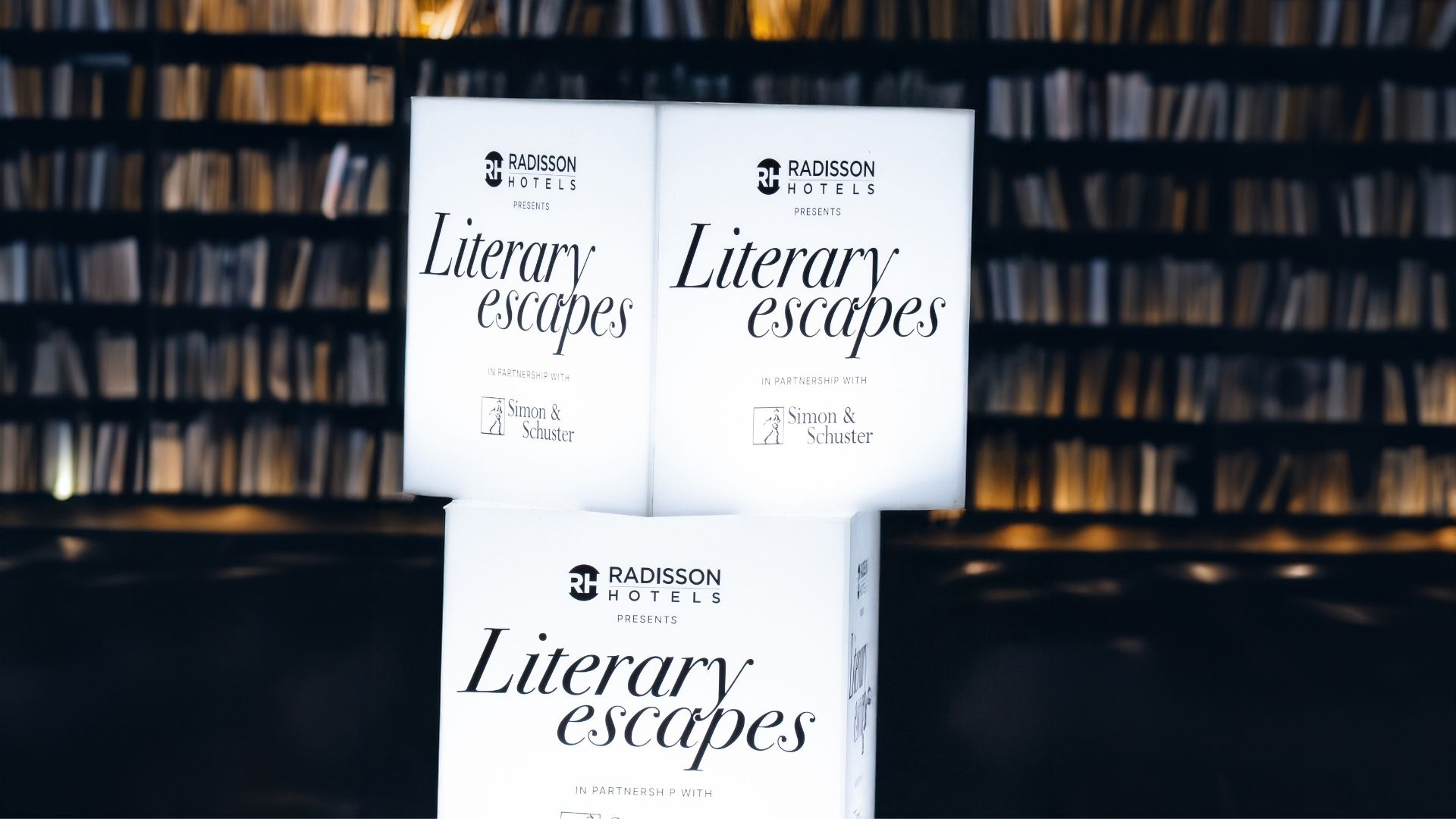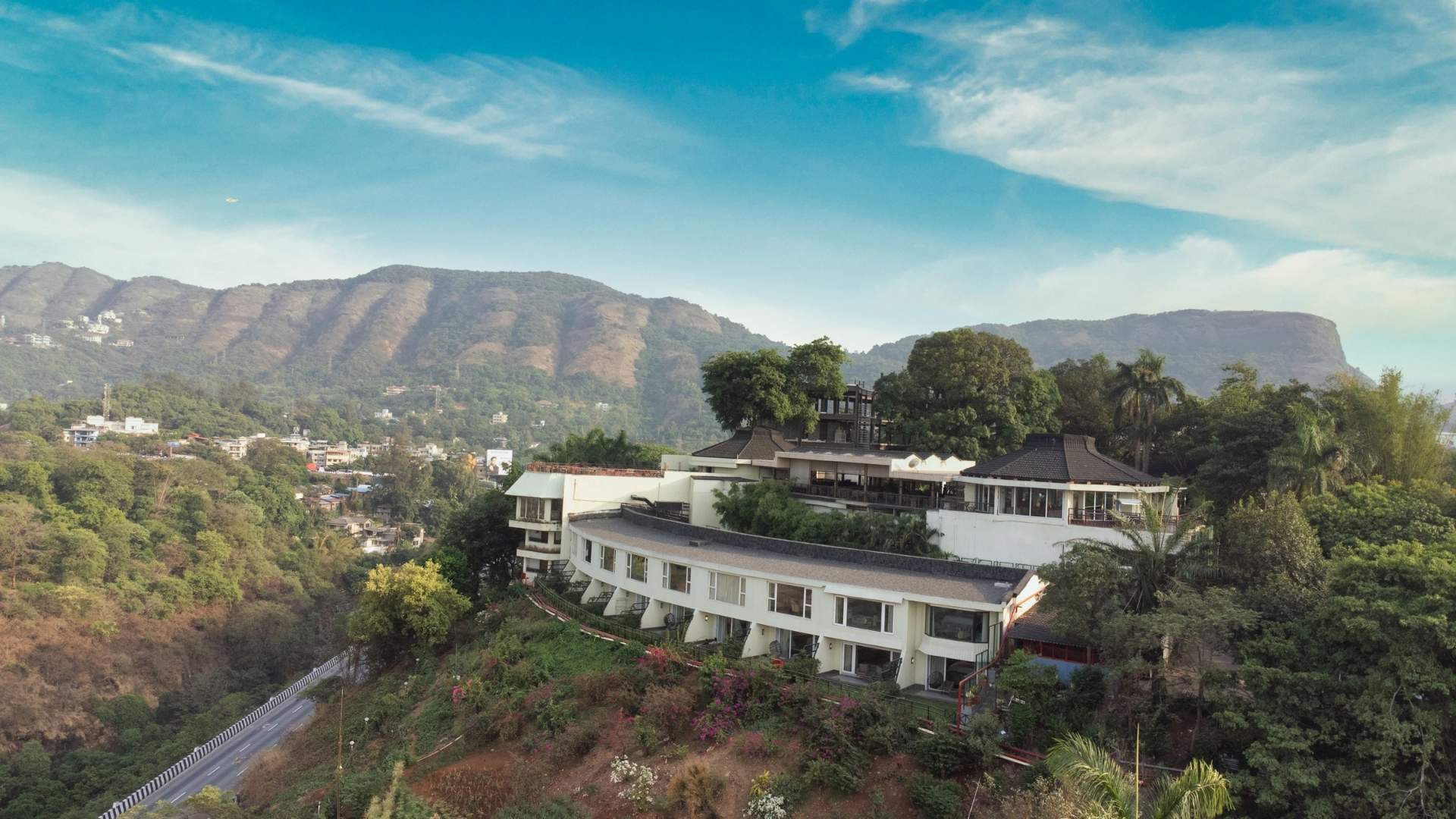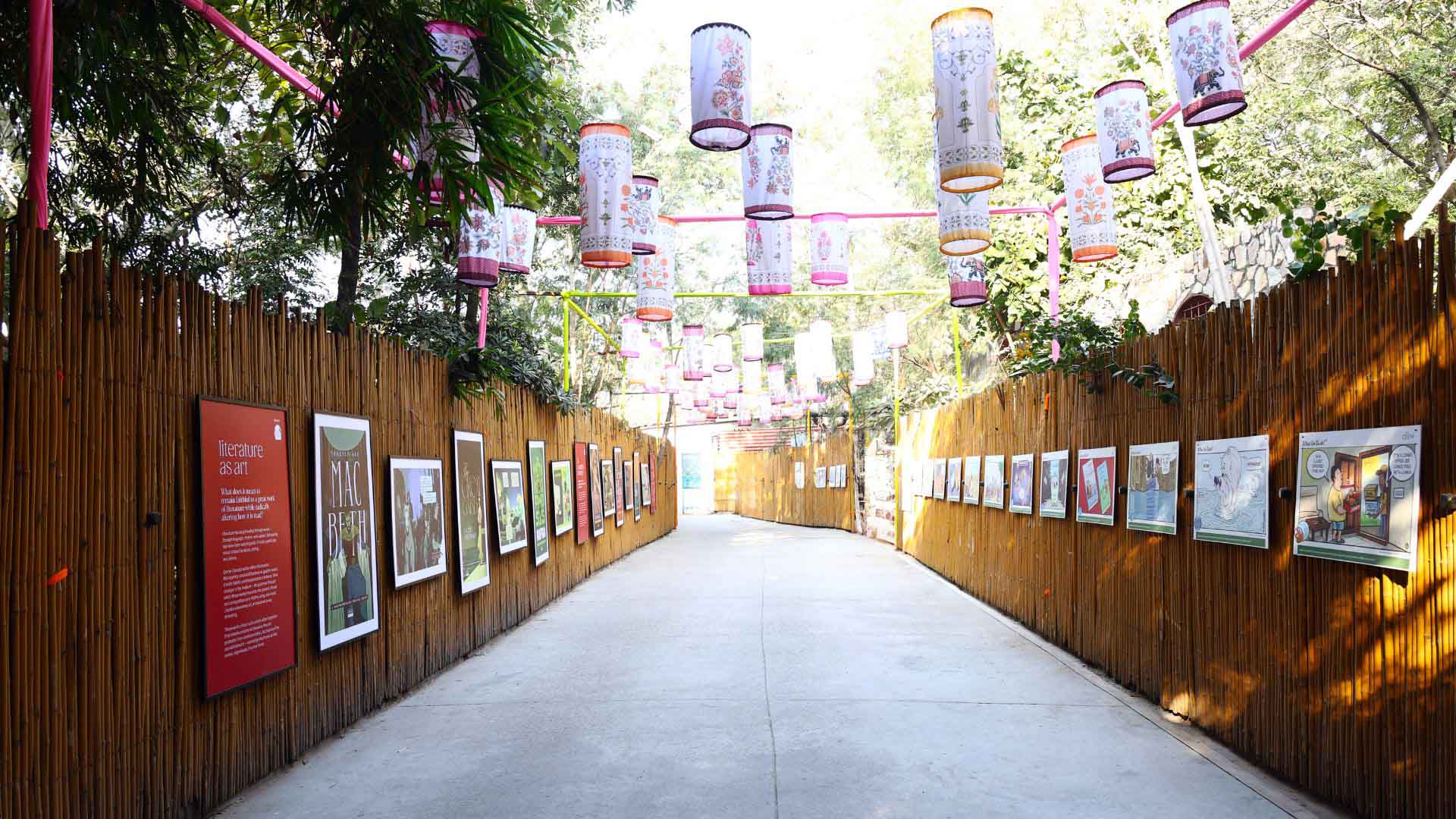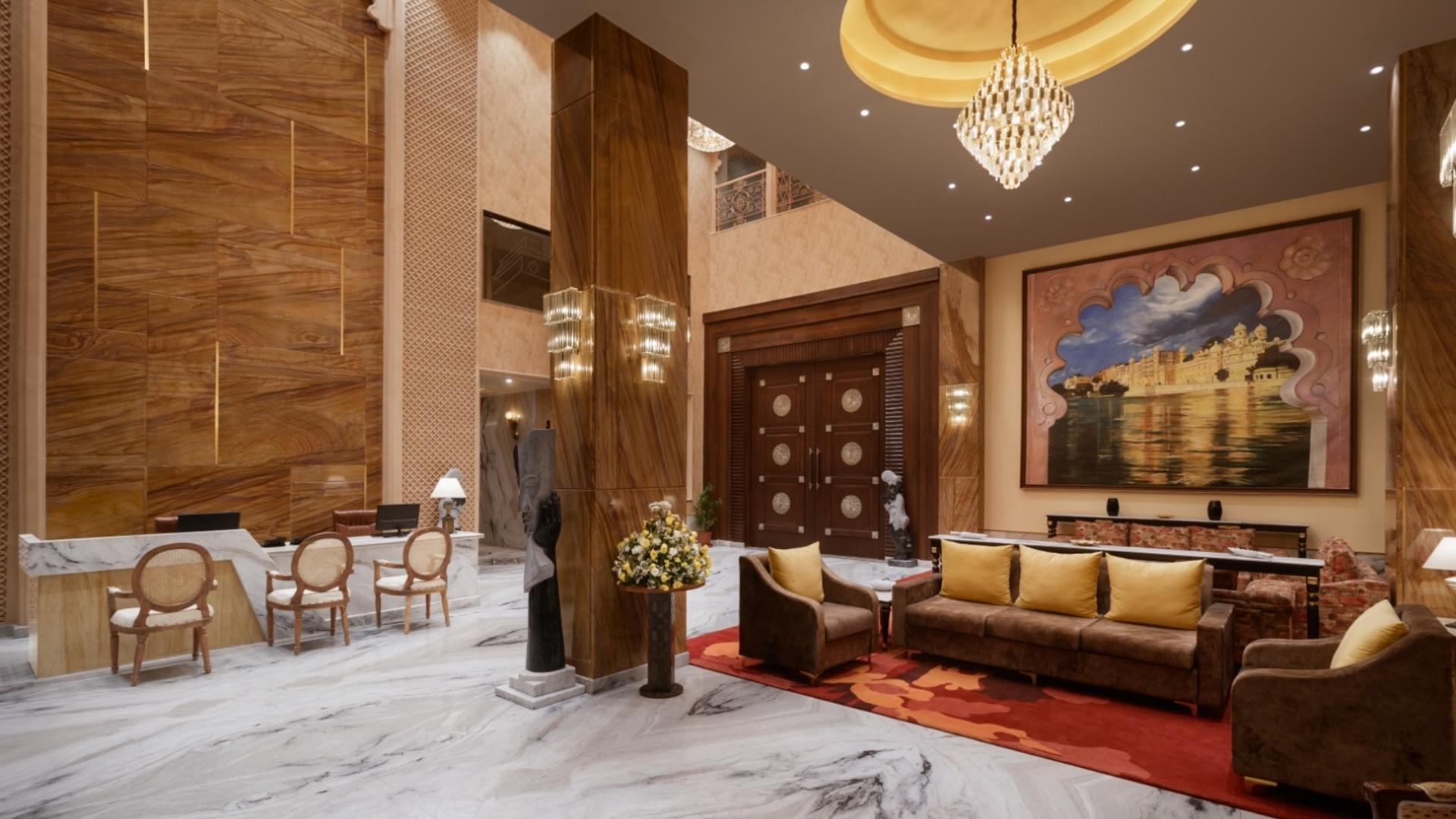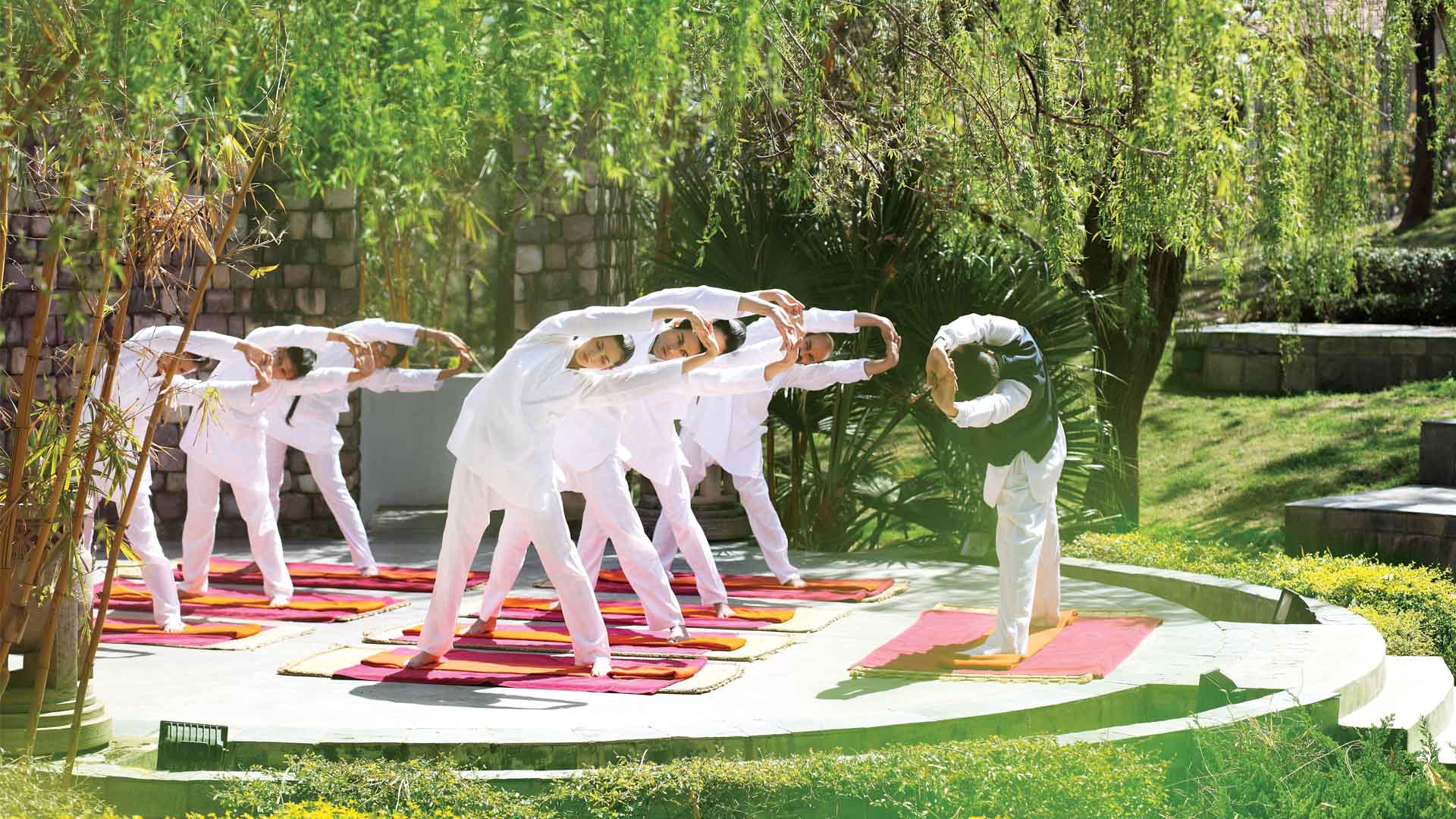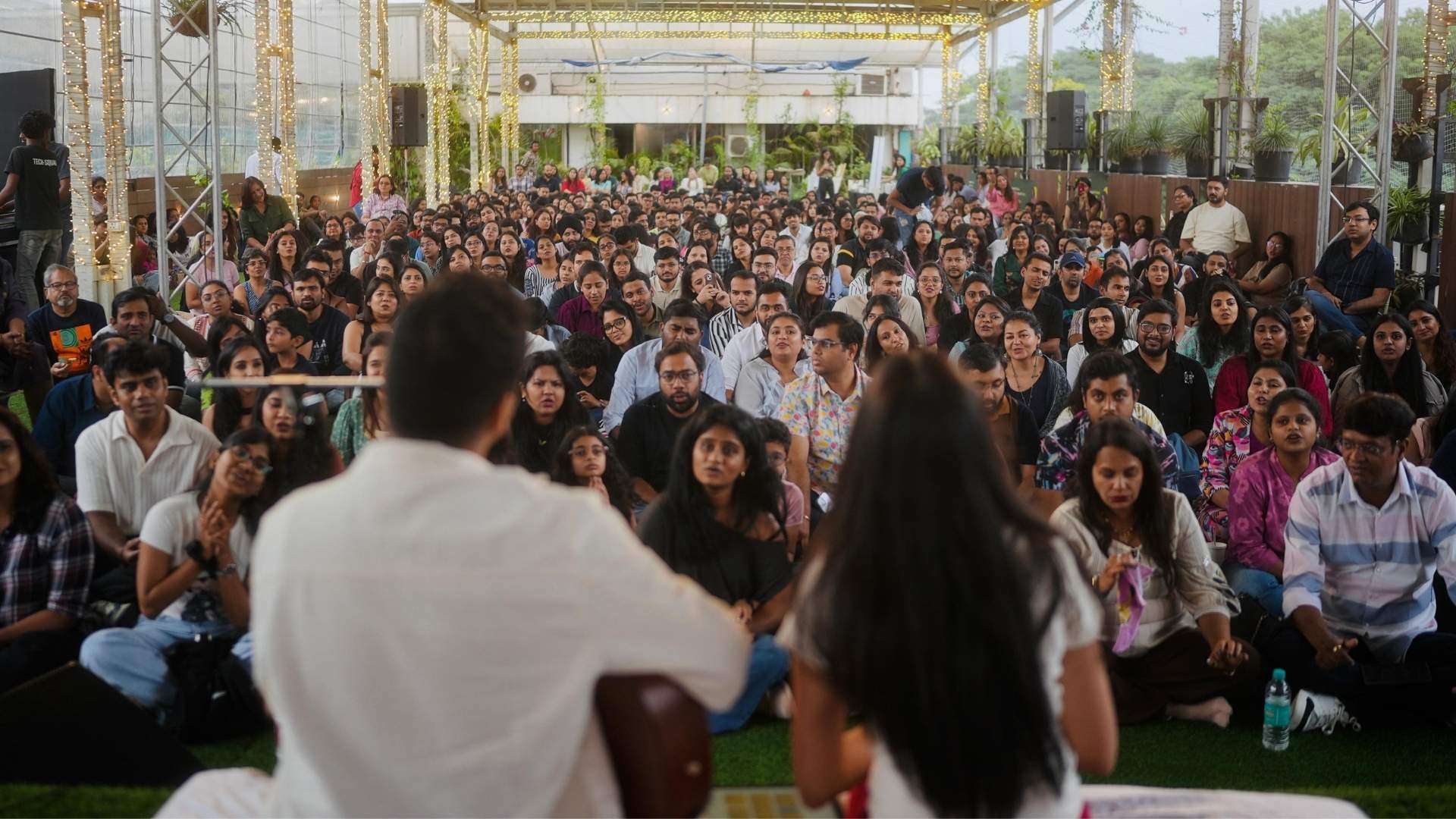Steeped in Stories: Discovering India’s Tea Tourism Charm
From tranquil estates to immersive experiences, India’s tea tourism invites travellers to sip, savour, and stay in the heart of tea country. Explore the heritage, hospitality, and sustainability that brew the perfect blend of culture and luxury.
By Rupali Sebastian
Chai. Cha. Chaya. Chaha. Tea.
It’s more than just a beverage; it’s a cornerstone of Indian life. The day’s first sip, a healing concoction when infused with herbs and spices, a remedy for wearied souls, and the unassuming catalyst of countless conversations and connections. Tea in India transcends its cup—it’s a cultural emblem, thriving everywhere from humble roadside stalls to opulent five-star hotels.
This love affair traces back to the British, who cultivated tea on an industrial scale to shatter China’s monopoly. Today, India stands as one of the world’s largest tea producers, boasting celebrated varieties like Darjeeling, Assam, Nilgiri, and Kangra. But tea’s story doesn’t end in the cup—it extends to the heart of its origins: the tea estates, nestled in picturesque landscapes—from the misty hills of Darjeeling to the rolling plains of Assam; from the lush Nilgiris to the serene Kangra Valley.
In the landscape of India’s cultural and natural diversity, these estates are an understated gem. Steeped in history and bathed in tranquillity, they offer more than just a beverage; they encapsulate heritage, landscapes, and hospitality—rolled into an immersive experience called tea tourism, which invites guests to engage with tea not just as a drink but as an entire lifestyle. The trend aligns beautifully with the mindset of the modern traveller who seeks deeper connections with destinations, authentic cultural experiences, and meaningful engagement.

Tea service at Glenburn, with a tea cosy featuring the 'two leaves and a bud' tea motif.
An immersive experience
A genuinely enriching tea tourism experience transcends the perfunctory factory tours, unfolding instead within the curated charm of boutique stays within or near tea estates, where every detail reflects the essence of tea culture and its intimate connection to the land. These are intimate spaces, often with less than 10 rooms, offering personalised attention.
Take Glenburn Tea Estate in Darjeeling, for instance. Spread across 1,600 acres, the estate cradles 1,000 acres of private forests, two rivers, and uninterrupted vistas of the majestic Mount Kangchenjunga. Its two meticulously restored colonial bungalows—the Burra Bungalow and the Water Lily Bungalow—house just eight suites, each exuding old-world charm. Over in Kangra, The Lodge at Wah, Palampur, unfurls its six eco-friendly rooms amidst 530 acres of tea gardens, offering a retreat infused with the serenity of the Himalayan foothills.
Further south, Sinna Dorai’s Bungalows take guests on a journey through southern India’s tea belt. Set within sprawling estates like Kadamane, which spans an awe-inspiring 7,000 acres (with only 1,000 acres under cultivation), these bungalows—at three locations, Valparai and Kadamane (both offering six rooms) and Mango Range (three rooms)—are an ode to the quiet luxury of plantation life. In Assam, the Wild Mahseer property nestles within the 1,000-acre Addabarie Tea Estate. Its 22-acre homestead comprises five independent heritage bungalows with a total of 16 rooms.
The Postcard’s latest addition to its portfolio is also located in Assam. Set amidst 1,400 acres of the Durrung Tea Estate (one of Assam’s oldest estates), the boutique hotel features a restored 1960s high-ceilinged, deep-verandahed plantation bungalow and ‘luxury chalets’ set lightly in the sprawl of the plantation itself. Calling it an ode to Assam, Kapil Chopra, Founder and Chief Executive Officer, The Postcard Hotel, says, “This destination offers a rare chance to immerse yourself in the wonders of India’s northeast and, of course, indulge in one of the world’s finest teas.”

The sweeping main verandah of the Burra Bungalow, Glenburn Tea Estate, set against the backdrop of the majestic Himalayas.

The certified heritage building of the Burra Bungalow, Wild Mahseer.

Husna-Tara Prakash, Owner & Founder, Glenburn Tea Estate
I don't think people have realised the depth of the operations that we offer on a tea estate to give people that experience.
Husna-Tara Prakash
Owner And Founder, Glenburn Tea Estate

Bespoke hospitality: where tea meets design, cuisine, and warmth
Tea tourism isn’t solely defined by boutique stays. Anandini Himalaya Tea redefines the concept by crafting stay-free experiences that celebrate the rich diversity of Himalayan teas through bespoke activities. “At Anandini Himalaya Tea, we offer curated tea tasting sessions, pairing workshops, and therapeutic tea walks that allow visitors to deeply connect with tea culture,” shares Co-founder Anamika Singh. Guests can also explore tea gardens and witness the intricacies of tea processing during factory tours. Singh adds, “These experiences not only showcase the nuances of our teas but also the rich heritage of Himalayan tea production.”
Tea tourism finds its most exquisite expression in the bespoke hospitality offered by India’s tea estates. These are not just stays—they are finely curated experiences where tea becomes a way of life, infused into every detail, from the cuisine to the décor to the deeply personal touches that make guests feel at home.
At Glenburn, owner and founder Husna-Tara Prakash’s vision seamlessly integrates tea into every facet of the experience. Guests are welcomed with tea-infused pakoras and tea-smoked chicken on the menu, while the 'two leaves and one bud' motif adorns the bed linen, reminding one of the estate’s very essence. The immersive tea tours guide guests through Glenburn’s sprawling plantation and factory, culminating in tastings of Darjeeling’s iconic first flush, second flush, and autumn crescendo teas.
“We offer an experience in a colonial bungalow where you can live the grand life of a tea planter, but also get involved and up close to the local community who are the heart and soul of what we do,” Husna-Tara shares. She notes that neither she nor her team has traditional hospitality backgrounds, yet they’ve created an extraordinary narrative by imagining what they would love as guests themselves. “When you exit the baggage hall, there's a Glenburn driver with a glass of nimbupaani, a cool towel, our own cars… Then, a four-hour drive up to the estate. Transport is available whenever you need it—to Darjeeling town or Kalimpong. Plus, you can explore the 1,600 acres within Glenburn.”
This attention to detail extends to staffing, ensuring unparalleled personal service. With a maximum capacity of 16 guests, an extensive team ensures every need is met. “I don't think people have realised the depth of the operations that we offer on a tea estate to give people that experience,” Husna-Tara remarks in an online discussion.
Shoba Anand, founder of RARE—a collection of boutique, concept hotels with a sharp focus on ‘conscious travel’, including Glenburn, The Lodge at Wah, and Wild Mahseer—applauds Glenburn’s tea-centric approach. “Husna was one of the few who really took accommodation experience to that level where she could command that price, and people are paying,” she says, noting that even Indian travellers, once hesitant about the cost, have, post-pandemic, begun flocking to Glenburn, drawn by its unparalleled offerings.
Down in Kangra, The Lodge at Wah offers a deeply personal experience. Owners Surya and Upasana Prakash treat their guests as personal house visitors, with one of the family members always present to ensure warmth and attentiveness. The estate not only showcases Kangra’s famed orthodox teas but also innovates with tea seed oil, a versatile product with culinary and cosmetic applications. “We’ve had guests who discover the intricacies of tea and leave saying, 'We’ll never look at a cup of tea the same way again',” shares Upasana.
At The Postcard Durrung Tea Estate, visitors can embark on a guided journey that explores tea’s transformation from leaf to cup. The experience includes a scenic walk through the estate, where guests learn about the history and art of tea cultivation while trying their hand at plucking the finest buds under the guidance of an expert. A visit to the estate's factory reveals the intricate process of transforming these leaves into a flavourful brew, culminating in a private tasting of The Postcard’s signature tea, ‘Merchant of the East’.

Guest rooms at The Lodge at Wah.

Different expressions of immersive luxury.

Surya Jai Prakash, Owner, The Lodge At Wah
Tea tourism a low-hanging fruit that adds a supplemental income, saves jobs, and makes the tea garden the hero.
Surya Jai Prakash
Owner, The Lodge At Wah

Beyond tea: connecting with the land and community
Tea estates are not merely about the brew; they are gateways to unique experiences. Guests can embark on nature trails, birdwatching excursions, slow cycling tours through the plantations, or engagement with nearby villages centred around their life, or, in some cases, their artisanal offerings.
At The Postcard Durrung Tea Estate, aside from jungle safaris and other adventurous experiences, guests can take a 45-minute drive to an “off-the-grid” village where over 500 women create handloom products high on quality and craftsmanship, using the region’s native Eri and Muga silk. To deepen the cultural immersion, guests can revel in the vibrant rhythm of the Bihu dance, accompanied by the resonant beats of the double-headed dhol, the melodic horn-pipes, and the soulful flute.
At Sinna Dorai’s Bungalows, the lush Western Ghats unfold in a breathtaking tapestry where tea fields and forests intertwine seamlessly. Guests can wander these biodiverse landscapes, where every turn reveals patches of untouched wilderness or stretches of manicured tea gardens. The estates’ commitment to conservation is evident in collaborations with NGOs to restore biodiversity and foster ecological research.
Wild Mahseer in Assam elevates the connection to nature with its Eastern Himalayan Botanic Ark, a 22-acre wonderland boasting over 300 species of trees and plants, many of them rare and endangered. Guided by expert naturalists, guests can delve into the stories of the flora, learn their medicinal and ecological significance, or marvel at the kaleidoscope of life—92 bird species and 72 butterfly varieties—flitting through this living sanctuary. Activities such as jungle bathing and tree-hugging offer a profound sense of immersion, while treks and cycling tours meander through tea gardens, riversides, and villages, blending adventure with cultural storytelling.
Glenburn Tea Estate crafts equally enchanting encounters, inviting guests to venture beyond its eight picturesque villages to explore the heritage and landscapes of the surrounding Himalayan communities. From hikes through bamboo forests and waterfalls to discovering hidden shrines and Lepcha villages, every path is steeped in history and natural beauty. Rustic river camps and the luxurious comfort of the estate’s bungalows form the perfect bookends to these unforgettable journeys. Meanwhile, at The Lodge at Wah in Kangra, yoga sessions unfold amidst pristine tea gardens.

A table laid out for a tea tasting experience at The Lodge at Wah.

Anamika Singh, Co-Founder, Anandini Himalaya Tea
There’s an opportunity to create a distinct identity for Indian tea tourism that differentiates it from other tea-producing regions.
Anamika Singh
Co-Founder, Anandini Himalaya Tea

Brewing a sustainable future
Tea tourism in India is undergoing a significant transformation, blending the country’s time-honoured tea traditions with a renewed commitment to sustainability. Estates across the nation are adopting organic practices, implementing water conservation measures, and prioritising the preservation of local biodiversity. This shift isn’t just about eco-friendly farming; it extends to how these estates conduct tourism, creating experiences that resonate with environmentally conscious travellers.
"Tea tourism in India has evolved beyond just offering serene experiences—it's increasingly embracing sustainability as a core principle," says Singh. “Many tea gardens, including ours in Dharamshala, are incorporating sustainable practices not just in tea production but also in how we conduct tourism activities. This includes organic farming practices to minimising waste during tea tastings and workshops. What's particularly encouraging is that visitors themselves are now asking questions about sustainability—they want to know about our farming practices, how we process our teas, and the impact on local communities."
Estates like Glenburn and the Lodge at Wah are leading by example. Glenburn’s sustainability initiatives have earned it national recognition, while the latter has recently gone fully organic, reflecting its long-standing commitment to eco-friendly tourism.

The Postcard Durrung Tea Estate features luxury chalets set amidst the plantation.

We offer an experience in a colonial bungalow where you can live the grand life of a tea planter.
A helping hand for estates
The Indian tea industry faces rising costs, stagnant markets, and financial pressures that threaten its survival. While bulk tea production remains the primary revenue stream, tea estates also serve as lifelines for entire communities, supporting workers and their families. This essential yet burdensome infrastructure highlights the urgent need for alternative revenue sources.
Tea tourism is emerging as a solution, providing estates with financial stability while preserving their heritage. Husna-Tara explains in an online discussion, “The kind of human statistics that are behind the cup of tea that everybody drinks every morning is huge. Running a hotel, growing maybe avocados one day, or something like that, is a way of keeping those communities safe.” Diversifying into hospitality allows estates to support their vast networks while adapting to modern challenges.
Surya calls tea tourism a “low-hanging fruit” that “adds a supplemental income, saves jobs, and makes the tea garden the hero”. By offering tea-infused experiences, estates can educate visitors about their products while fostering loyalty and generating revenue.
Singh highlights the ripple effects of such hospitality and educational undertakings, something beyond direct income: “When visitors connect with our teas through immersive experiences, they often become long-term customers and brand advocates. We've observed that participants in our tea workshops and tastings typically make larger purchases and show stronger brand loyalty compared to regular customers.” Thus, for boutique operations, tea tourism builds both brand value and sustainable growth.
Despite these hurdles, the opportunities in this sector are immense. The global demand for experiential, sustainable, and wellness tourism aligns perfectly with what tea tourism has to offer. Indian tea, with its rich heritage and diversity, provides unique experiences that can’t be replicated elsewhere. “We’re seeing increased domestic interest in understanding tea culture, particularly among young urban professionals who are eager to learn about artisanal teas and traditional production methods,” Singh adds.
Digital platforms and social media have also become powerful tools for marketing tea tourism to a global audience. Virtual showcases of estates and immersive experiences have helped attract travellers seeking authenticity and depth. Singh highlights an exciting prospect: “Most importantly, there’s an opportunity to create a distinct identity for Indian tea tourism that differentiates it from other tea-producing regions, highlighting our unique traditions, diverse tea varieties, and the cultural heritage of different tea-growing regions.”
Tea tourism is more than just an escape; it’s a journey through history, culture, and community. As Anand eloquently puts it, “The tea story is way beyond the stay. It extends into the community. It extends to the owners, their vision about tea, their style, and, of course, their embracing of the local community and what they do with these things to create value—for them and for your travels.”

Cultural performances is one of the highlights on offer for the guest at Wild Mahseer.

The gastronomic creations at Glenburn include a variety of European dishes that make use of the Italian herbs and salad leaves grown in the boutique hotel's well-stocked kitchen garden.
Iconic tea estates to visit
Tea plantations, steeped in tradition and nestled in breathtaking landscapes, offer a glimpse into the rich heritage and meticulous artistry behind India’s iconic teas.
Kolukkumalai Tea Estate, Bodinayakanur, Tamil Nadu
Perched at an altitude of 7,900ft., Kolukkumalai Tea Estate is the highest tea plantation in the world. Known for its panoramic views of the Western Ghats, the estate offers visitors a unique experience of tea-making using age-old orthodox methods. The journey to Kolukkumalai is an adventure in itself, involving scenic, rugged mountain trails.
Jorhat Tea Estates, Jorhat, Assam
Known as the ‘Tea Capital of the World’, Jorhat is home to several iconic estates and the Tocklai Tea Research Institute. Visitors can explore the science and art behind Assam’s tea production while enjoying the lush surroundings.

Kolukkumalai Tea Estate, Bodinayakanur, Tamil Nadu
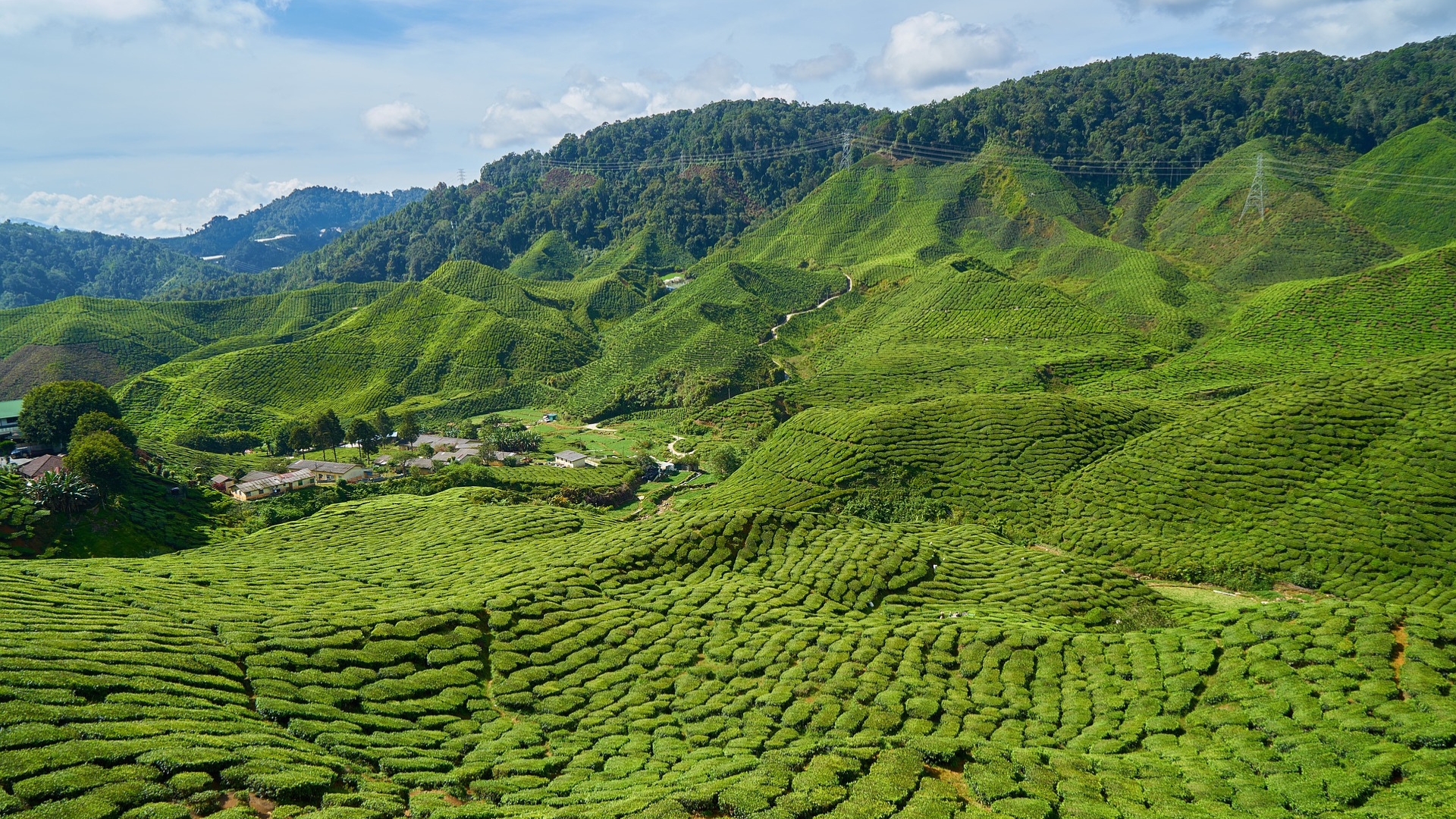
Jorhat Tea Estates, Jorhat, Assam
Kanan Devan Hills Plantation, Munnar, Kerala
Located in the scenic hill station of Munnar, this sprawling estate is operated by Tata Tea and is one of southern India’s largest tea plantations. The estate also features a Tea Museum where visitors can learn about the history of tea in the region and experience interactive tea-tasting sessions amidst stunning landscapes.
Makaibari Tea Estate, Kurseong, West Bengal
A pioneer of organic tea farming, Makaibari Tea Estate offers a blend of history, sustainability, and luxury. Visitors can savour its globally acclaimed teas, tour the biodynamic plantations, and stay in homestays that echo local traditions. Taj Guras Kutir, nestled within Makaibari Tea Estate, adds a touch of luxury to the serene surroundings.

Kanan Devan Hills Plantation, Munnar, Kerala

Makaibari Tea Estate, Kurseong, West Bengal



























